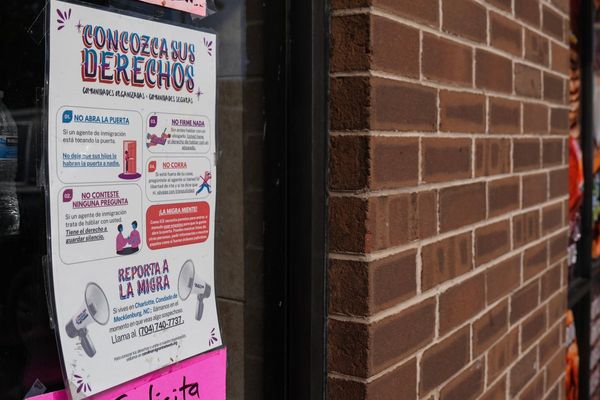
The Netherlands is still working on legislation to bar imports from illegal settlements in occupied Palestine, even though it has paused a push for broader sanctions on Israel after last month’s ceasefire deal in Gaza, the foreign minister has said during a visit to the region.
The partial ban was a response to settlement expansion and spiralling Israeli violence against Palestinians that threatened the viability of the two-state solution, David van Weel said after visiting an area in the West Bank that had been targeted by settlers.
“Now we deem it is not a time to increase sanctions on Israel because we want to see the peace plan implemented and we want to also encourage Israel to play a positive part in this,” he told the Guardian in an interview.
“At the same time, we’re not blind to any movements on the West Bank that might move the two-state solution further (away).”
Five EU countries have announced plans to impose sanctions on trade with Israeli settlements in the occupied West Bank, where soldiers and settlers have killed more than 200 Palestinians this year, including 40 children.
Spain and Slovenia have banned exports from settlements; Ireland and Belgium are working on legislation and implementation. Belgium and Spain have cut consular services to settlement residents.
Van Weel said drawing up the legislation had been slow and difficult since trade policy was mostly controlled by the EU.
“It’s not easy to make a carve-out,” he said. “We cannot just stop [all imports from illegal settlements] immediately because there is currently no legal basis for that. We are trying to make new policy now, then it has to go through parliament.”
Attacks on Palestinians in the West Bank and political demands inside Israel for annexation have risen sharply over the past two years.
An average of eight daily Israeli attacks on people, property and agriculture in occupied Palestine took place in October – the highest number since the UN began keeping records nearly two decades ago. Many more attacks go unreported.
Last month, the Knesset gave preliminary approval to a bill that would in effect annex the West Bank by applying Israeli law there, although Donald Trump and the Israeli prime minister, Benjamin Netanyahu, opposed it.
Nine member states in June asked the EU Commission to examine how to cut trade with Israeli settlements, in light of the international court of justice ruling that Israel’s occupation was illegal and must be ended as soon as possible.
The court also advised that other states had an obligation not to aid or assist Israel, or to recognise the occupation as lawful. The request was brought by Belgium, Finland, Ireland, Luxembourg, Poland, Portugal, Slovenia, Spain and Sweden.
Israeli exports from settlements in occupied Palestine are a tiny fraction of overall trade with the EU, so sanctions serve more as a political message of commitment to a future Palestinian state than a significant economic deterrent.
However, Europe could have huge economic leverage over Israel. Together, EU member states are Israel’s largest trading partner, accounting for a third of its worldwide trade in goods, but they have never been united enough to deploy that influence effectively.
That looked like it was shifting this year in response to starvation and mass killings in Gaza, where scholars, rights groups and a UN commission said Israel had committed genocide.
The Netherlands, historically one of Israel’s most loyal European allies, launched an unprecedented push in May to review the EU’s association agreement with Israel, which is the basis for tariff-free trade and other important financial and cultural ties, including Israel’s membership of the Horizon research funding programme.
A review found Israel had broken human rights obligations under the deal, and in September the EU executive called for a sweeping suspension of free trade with Israel and sanctions on two far-right ministers.
Those measures were put on hold after the Trump-brokered ceasefire came into force but not been taken off the table. Hundreds of senior EU diplomats have joined a months-long campaign urging the EU to respond more decisively to Israeli violations of international law in Gaza and the West Bank.
Banning trade with illegal settlements should be part of a broader package of measures, including those proposed in September, said Sven Kühn von Burgsdorff, one of the co-organisers and a former EU envoy to occupied Palestine.
“Taking away the preferential trade arrangements for Israel proper under the association agreement, [imposing sanctions on] the far-right ministers Ben Gvir and [Bezalel] Smotrich and suspending Israel’s access to Horizon Europe … together with a total ban on trade with settlements would send an important political message to Israel,” he said.
“Business as usual is over … Time for impunity is over.”







